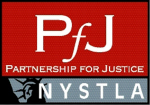 Structured settlements are great for personal injury clients who will need care for years to come — maybe for the rest of their lives — but sometimes even that is not enough. What if this client is completely reliant on someone else, a parent or child, who provides care almost 100 percent of the time? What if something were to happen to that person? What will happen to the client then? Who will take care of them and how will they pay for that care?
Structured settlements are great for personal injury clients who will need care for years to come — maybe for the rest of their lives — but sometimes even that is not enough. What if this client is completely reliant on someone else, a parent or child, who provides care almost 100 percent of the time? What if something were to happen to that person? What will happen to the client then? Who will take care of them and how will they pay for that care?
A child with a terrible birth defect who was going to need care for her entire life received a settlement for her birth injury. We established a settlement preservation trust, into which a structured monthly payment would cover all of her needs. Fortunately her parents were able to take care of her. We wanted to make sure that she would be taken care of in the worst case scenario: if something were to happen to her parents and one or both of them were no longer able to care for her.
Through her trust we purchased a life insurance policy for each of her parents. The premiums were paid over the course of five years with five structured payments. If something were to happen, the trust would receive a $2 million cash influx to cover the costs of professional care, school and any other needs that could arise. Obviously, we hope that her parents will be around for a long time, but now we know we’ve gone above and beyond to plan for the worst curve ball life can throw. And if nothing happens, there will be tax-free income from the cash value of the policy waiting for her when she’s older.
We recommend adding life insurance for caregivers to structured settlements for clients with a catastrophic chronic or permanent condition, such as a brain injury. Each case has its own needs, whether they are medical, home care or special education; but life insurance should always be considered. This is a great way to be prepared for unforeseen circumstances while providing maximum flexibility.
Life insurance policies provide an additional source of tax-free income that can always be liquidated. They diversify the income sources for a client as well. Life insurance is also an investment that provides the potential for growth to supplement the fixed income from the structured settlement.
They say that nothing can prepare you for the grief of losing a parent or child, but you can be prepared financially for the ultimate worst-case scenario.
How are you accounting for worst-case scenarios? Do you have any examples of how life insurance was helpful in a structured settlements situation? Please share your thoughts and ideas with us.


